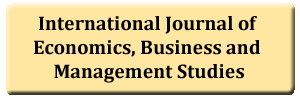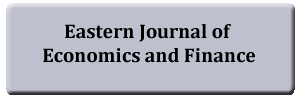The Influence of Credit Risk on Equity Performance: An Empirical Assessment of Banks Listed on the Ghana Stock Exchange
DOI:
https://doi.org/10.20448/801.51.33.46Keywords:
Credit risk, Financial performance, Monetary policy, Financial risk, Ghana stock exchange, Banks, Ghana.Abstract
The purpose of the study is to assess how credit risk exposure among listed banks on the Ghana stock exchange (GSE) affects Returns on Equity (ROE). The study adopts a panel data for the period 2006 – 2017 of seven different banks listed on the Ghana Stock Exchange. The empirical assessment was tested using the fixed and common constant effect regression, correlation and the Granger causality test. Secondary data were extracted from the BoG time series data, Ghana Statistical service and audited annual reports of the listed banks. Credit risk measured by NPLTL was found to negatively and significantly influence ROE. Both the common constant effect and fixed effect of the regression results indicated a negative significant influence of credit risk on ROE. The Granger causality test as well supports the regression findings as credit risk was found to cause ROE. In conclusion, banks must strengthen their credit risk management framework to help combat the credit risk exposures they face. The Ghanaian central bank must as well improve their supervisory role to ensure banks comply with the existing financial regulations.




